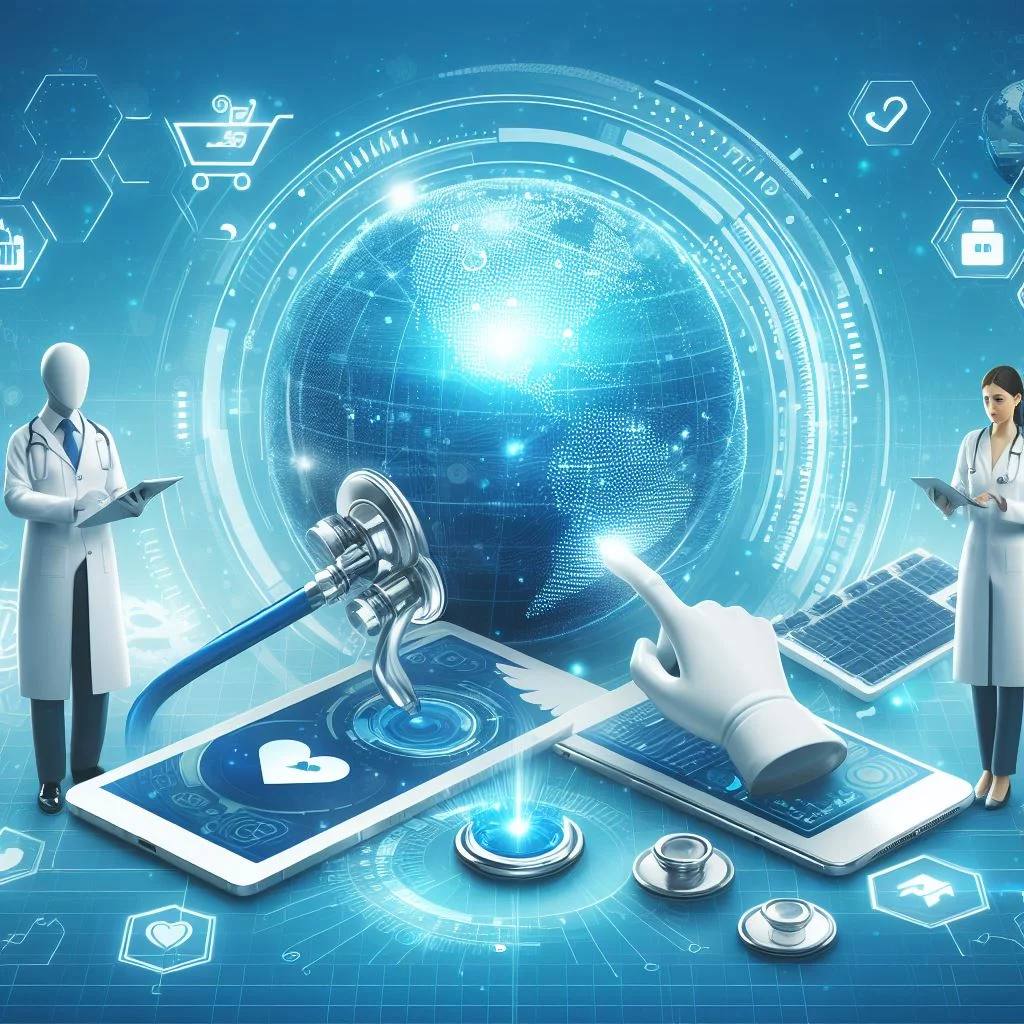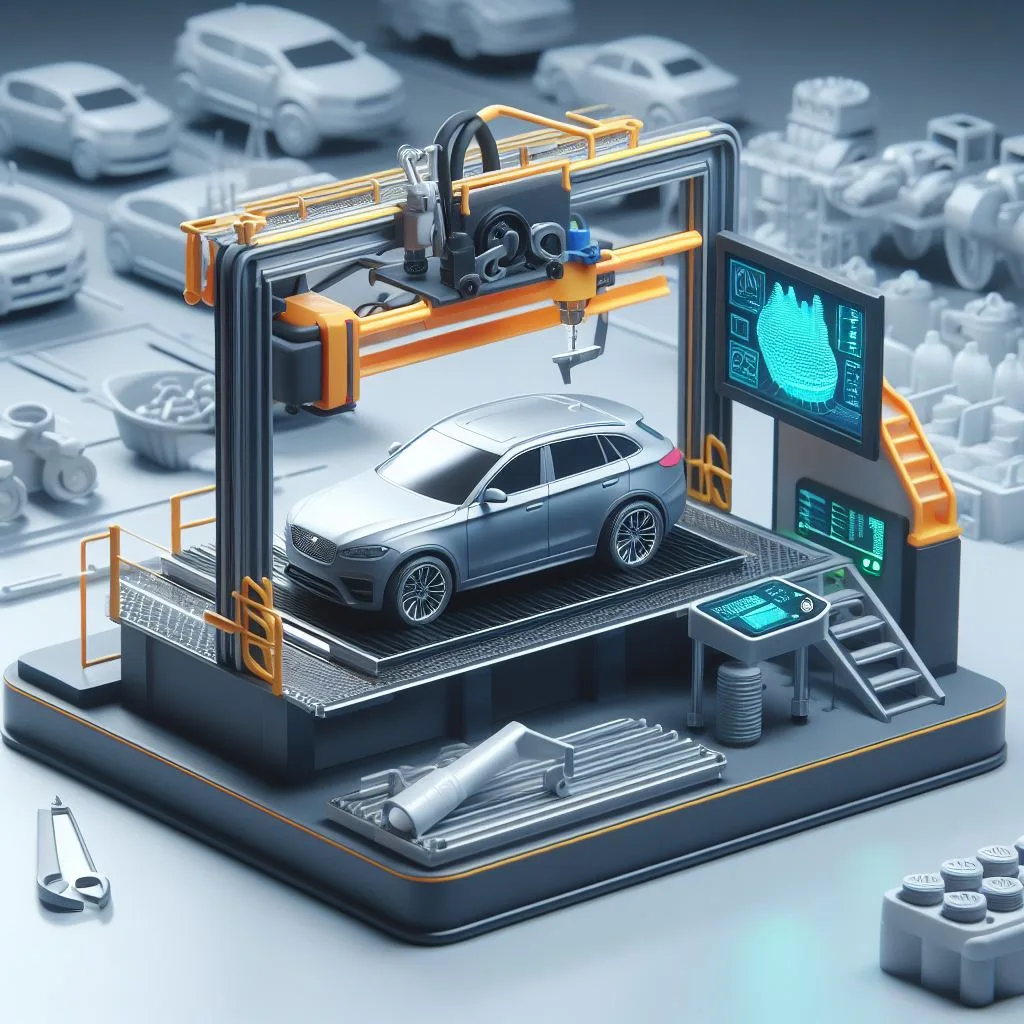Digital transformation in healthcare, also known as health-tech, encompasses the integration of digital technologies into all aspects of healthcare delivery, from patient care to administrative processes. It is ushering in a new era of precision and efficiency in healthcare. For instance, the integration of electronic health records (EHRs) has streamlined patient data management, enabling quick access to medical history and reducing errors in diagnosis and treatment. Telemedicine platforms are connecting patients with specialized care remotely. Telemedicine making healthcare more accessible and efficient. Moreover, AI-driven technologies are revolutionizing medical imaging and diagnostics, enhancing accuracy and speed. For example, machine learning algorithms can detect anomalies in medical images with remarkable precision. Also, Internet of Things (IoT) is being used to remotely monitor patients, providing timely interventions and improving overall care quality.
Wildest Thought on Smart Homes: Structural Disruption
Health-tech, borne out of the digital transformation in the healthcare sector, holds the promise of making healthcare more affordable. Traditional healthcare can be expensive due to the extensive training and high salaries required for medical professionals. However, digital health solutions powered by AI and automation offer a cost-effective alternative. By automating routine tasks and enhancing diagnostic accuracy, AI-driven systems can reduce the workload on healthcare professionals. It will allow them to focus on more complex and critical tasks.
Over the years, the standardization of lab tests has indeed simplified the diagnostic process, making it more efficient and accessible. However, one crucial piece has often been missing in the healthcare puzzle: unified patient data. Patient data has remained fragmented, dispersed across various healthcare providers and systems. This lack of unification has hindered the full potential of precision medicine.
Unified patient data is paramount for delivering more effective and precise diagnoses and treatments. It enables healthcare professionals to have a comprehensive view of a patient’s medical history, from lab results to past diagnoses and treatment outcomes. With this holistic understanding, they can make more informed decisions, tailoring treatment plans to individual needs. For instance, unified data can reveal how specific foods affect a patient’s blood sugar levels, enabling personalized dietary recommendations. It can also help detect patterns and trends in health, making it easier to identify potential issues and intervene proactively.
Unified data eliminates the need for duplicate tests and procedures, as healthcare providers have access to a patient’s medical history. This streamlines the diagnostic process and reduces unnecessary costs. Also, by identifying health trends and risks more effectively through comprehensive data analysis, healthcare providers can focus on preventive measures. Early interventions can prevent costly treatments for advanced conditions.
Personalized and accurate treatments can be done only by Digital Transformation
Digital transformation enables the collection and analysis of vast amounts of patient data. It includes medical records, genetics, lifestyle, and environmental factors. This data is crucial for understanding an individual’s unique health profile. With this wealth of information, healthcare providers can develop treatment plans tailored to an individual’s specific needs. This includes selecting the most effective medications, therapies, and interventions based on genetic predispositions and past responses to treatments.
Digital transformation allows for early detection of health risks and provides the opportunity for interventions before a condition becomes severe. For example, identifying the specific food triggers for blood sugar spikes in diabetics allows for preventive dietary measures. IoT devices and wearables can track a patient’s vital signs, medication adherence, and other health indicators in real-time. This enables continuous monitoring and immediate adjustments to treatment plans, ensuring personalized care.
Digital tools, including mobile apps and telemedicine, empower patients to actively participate in their care. They can access health information, communicate with healthcare providers, and make informed decisions about their treatment.
Preventive tech-first healthcare systems will disrupt the healthcare economy
The prevailing healthcare paradigm is set to shift towards preventive measures, and let’s be honest about why.
The medical field, like any other industry, is not immune to corruption. From pharmaceutical companies pushing unnecessary medications to healthcare facilities prioritizing profits over patient well-being, the cracks in the system are evident. A glaring example is the juxtaposition of a famous fast-food franchise serving high-cholesterol meals on the ground floor of a hospital, just above which lies a heart specialty ward. In a world driven by capitalism, where ethical concerns often take a back seat, the question arises: If people don’t fall ill, how does the healthcare economy sustain itself?
The future of healthcare is likely to witness a shift towards subscription-based healthcare plans. This model is more democratized, unified, and, due to its mass availability, potentially more cost-effective. Instead of profiting from illness, the new economy will thrive on keeping individuals healthy. The promotion of health consciousness could become a strategy to sell healthcare plans, mirroring the way electric vehicles are marketed as “green solutions.” It’s a nuanced dance between profit motives and the genuine desire for a healthier population. The challenge lies in navigating this intersection, where financial interests align with the common good, transforming the healthcare landscape into one that prioritizes prevention, wellness, and accessibility.
Embracing digital transformation is not just a choice but a necessity to stay relevant in the game. The inevitability of this shift heralds a future where healthcare becomes less regressive in nature. The traditional models of reactive care are gradually giving way to proactive and digitally driven approaches. By integrating advanced technologies, healthcare providers can streamline processes, enhance diagnostic accuracy, and, most importantly, prioritize preventive measures. Digital transformation empowers healthcare to break free from regressive patterns, fostering a more patient-centric, efficient, and forward-thinking industry that places a premium on holistic well-being and long-term health outcomes.












